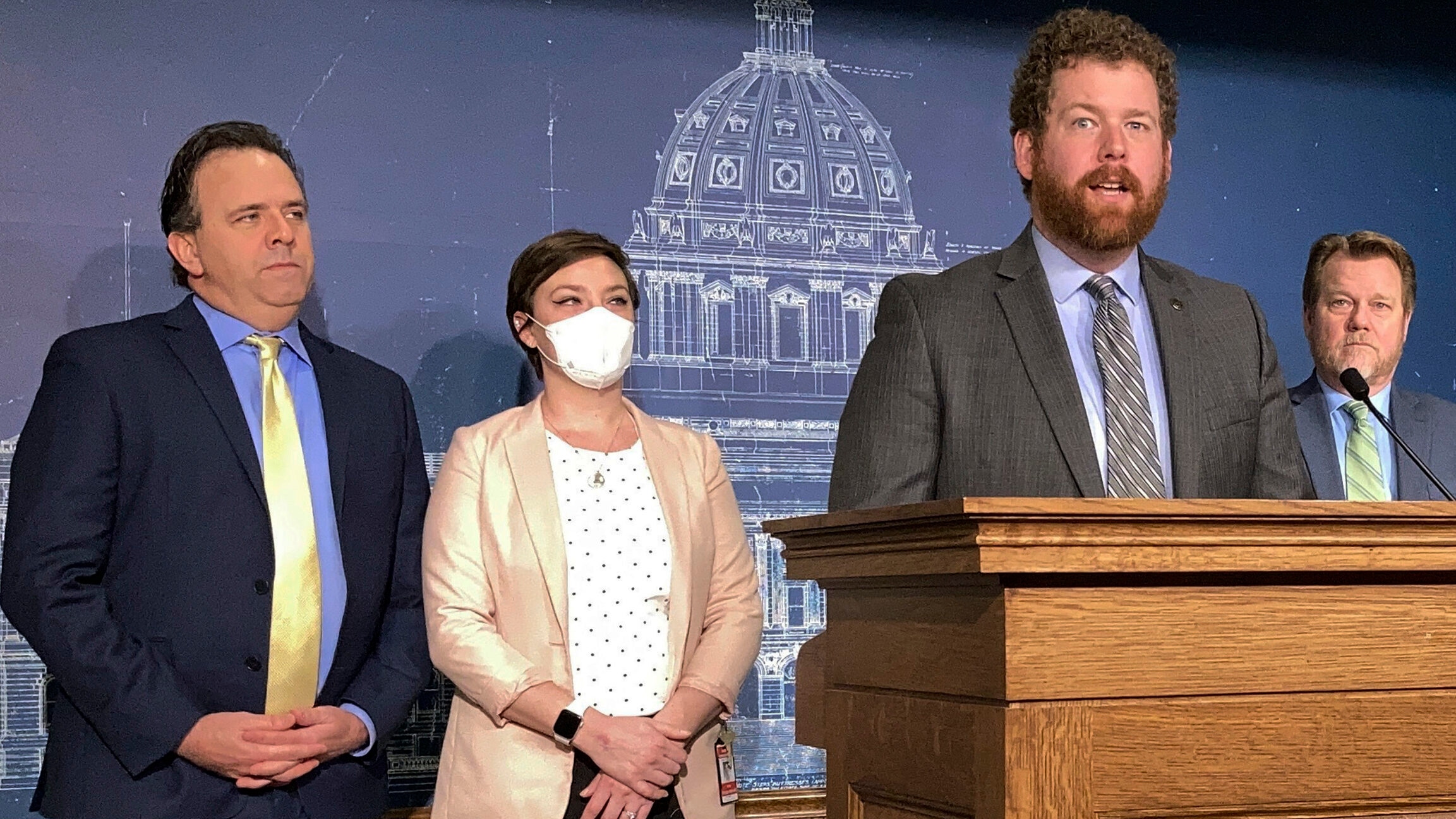Minnesota sports betting bill passes another House committee
A bill to legalize sports betting in Minnesota is making its way through the Minnesota House and has passed through a second committee.
The bill passed the House Finance Committee on Tuesday and now goes to the Judiciary Committee. It passed the Commerce Committee last week.
“People just use shady websites, digital workarounds and other means to place bets,” said bill author Rep. Zach Stephenson, DFL-Coon Rapids. “What this bill is about is creating a legal marketplace that will displace that black market and in doing so provide consumer protection.”
The bill would only allow sports betting in Native American casinos and through mobile devices and operators partnered with the tribes.
The original sports betting bill in the House would have allowed legal sports wagering for anyone 18 or older, but Stephenson said Tuesday he will amend it to make 21 the legal age for sports betting. Under Minnesota law, anyone 18 and older can gamble in casinos.

Democratic Rep. Zack Stephenson, of Coon Rapids, speaks at a news conference at the Minnesota State Capitol in Minneapolis, on Monday, March 7, 2022, to unveil a bill to legalize sports betting in Minnesota. Joining Stephenson, from left, Republican Rep Pat Garofalo, of Farmington, Democratic Rep. Carlie Kotyza-Witthuhn, of Eden Prairie, and GOP Rep. Tony Jurgens, of Cottage Grove. Critics of a bill to legalize sports betting in Minnesota warned legislators Tuesday, March 15, that it would worsen problem gambling and favor tribes over other gaming interests. (AP Photo/Steve Karnowski)
Also Tuesday, the Minnesota Indian Gaming Association gave its tentative approval to the bill but will continue to monitor any changes.
“In concept, House File 778 does recognize that tribes as the state’s gaming experts are best positioned to operate Minnesota sports betting market both in retail and mobile environments,” said Andy Platto, executive director of the Minnesota Indian Gaming Association.
Opponents of the bill were also heard during the virtual hearing on Tuesday.
“Very pleased to hear the change to raise the gambling age, but we feel very strongly this should be limited to in-person gambling,” testified Anne Krisnik of the Joint Religious Legislative Coalition. “Someone physically has to go to a site to make that bet.”
Another opponent, Jake Grassel of Citizens Against Gambling Expansion, said studies show people who wager on sports have more compulsive gambling problems than others.
“Sports bettors have higher rates of problem gambling at 5.7%, compared with adults that bet at casinos, bought lottery tickets, raffle tickets or made private bets,” Grassel said. He added that people who bet on sports through mobile devices have an 18% bigger problem.